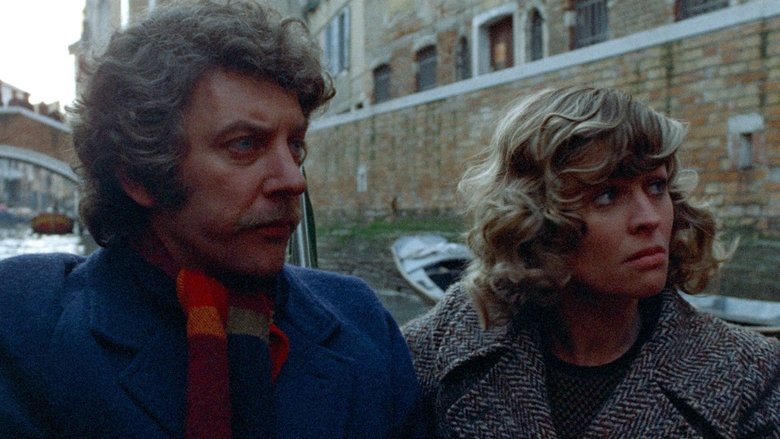← Back to Reviews

in
#441 - Don't Look Now
Nicolas Roeg, 1973

After their young daughter dies as a result of accidental drowning, her parents travel to Venice for work reasons.
Nicolas Roeg is one of those filmmakers who makes interesting films but not necessarily great films. On paper, Don't Look Now doesn't make for the most interesting film - Donald Sutherland and Julie Christie play a married couple who are left distraught by the accidental death of the daughter and both eventually relocate to Venice as part of Sutherland's job restoring old cathedrals. Where things get interesting is when Christie encounters a pair of old ladies, one of whom is apparently psychic and is capable of communicating with the dead (which naturally includes the couple's dead daughter). Of course, this sets up a fundamental believer-versus-skeptic conflict between her and Sutherland and...well, that's about as much elaboration as the plot really gets. Of course, if the Roeg movies I've seen are any indication, he generally isn't concerned with developing elaborate plots so much as using said plots as springboards for captivating visuals. Don't Look Now definitely provides enough of those with its extremely kinetic camerawork and rapid editing making for a handful of memorable scenes.
Of course, just because there are a handful of well-done scenes doesn't automatically make the film as a whole great. Despite its distinctive visual style, Don't Look Now is probably still a little too long for its own good as it spends several scenes trying to develop its plot, which still feels kind of besides the point. The two leads are good actors and most of the supporting cast are serviceable, but the histrionic acting of the old psychic lady is a bit too distracting for its own good. It works reasonably well as a psychological thriller outside of its attempts to actually focus on a plot and that infamous ending is still as bizarre as ever. It's definitely worth watching if you haven't seen it before, but I can't help but feel like its appeal only goes so far.
Nicolas Roeg, 1973

After their young daughter dies as a result of accidental drowning, her parents travel to Venice for work reasons.
Nicolas Roeg is one of those filmmakers who makes interesting films but not necessarily great films. On paper, Don't Look Now doesn't make for the most interesting film - Donald Sutherland and Julie Christie play a married couple who are left distraught by the accidental death of the daughter and both eventually relocate to Venice as part of Sutherland's job restoring old cathedrals. Where things get interesting is when Christie encounters a pair of old ladies, one of whom is apparently psychic and is capable of communicating with the dead (which naturally includes the couple's dead daughter). Of course, this sets up a fundamental believer-versus-skeptic conflict between her and Sutherland and...well, that's about as much elaboration as the plot really gets. Of course, if the Roeg movies I've seen are any indication, he generally isn't concerned with developing elaborate plots so much as using said plots as springboards for captivating visuals. Don't Look Now definitely provides enough of those with its extremely kinetic camerawork and rapid editing making for a handful of memorable scenes.
Of course, just because there are a handful of well-done scenes doesn't automatically make the film as a whole great. Despite its distinctive visual style, Don't Look Now is probably still a little too long for its own good as it spends several scenes trying to develop its plot, which still feels kind of besides the point. The two leads are good actors and most of the supporting cast are serviceable, but the histrionic acting of the old psychic lady is a bit too distracting for its own good. It works reasonably well as a psychological thriller outside of its attempts to actually focus on a plot and that infamous ending is still as bizarre as ever. It's definitely worth watching if you haven't seen it before, but I can't help but feel like its appeal only goes so far.
